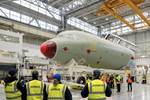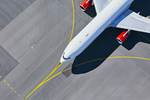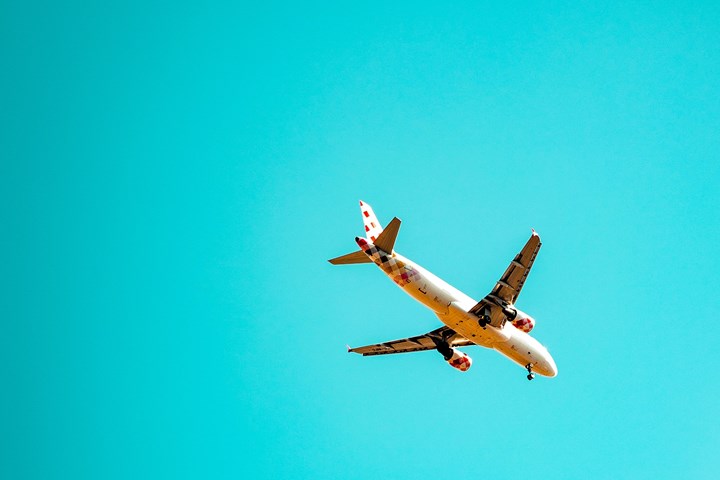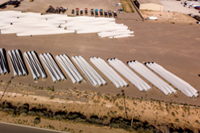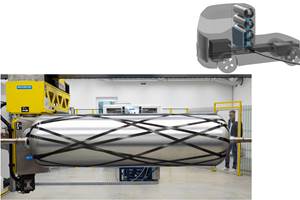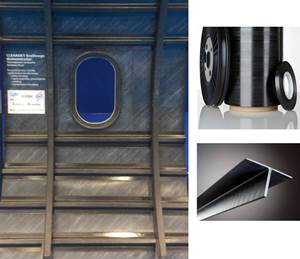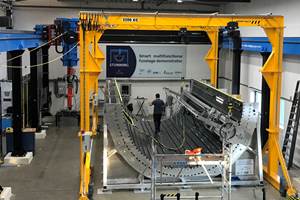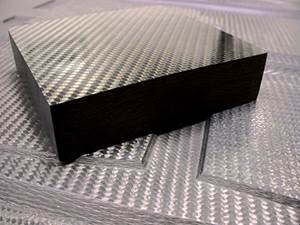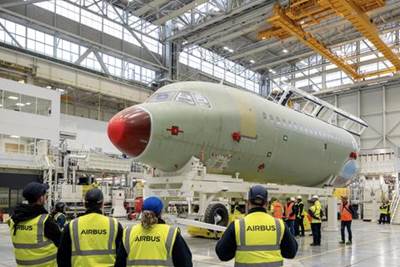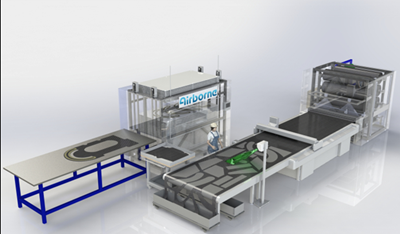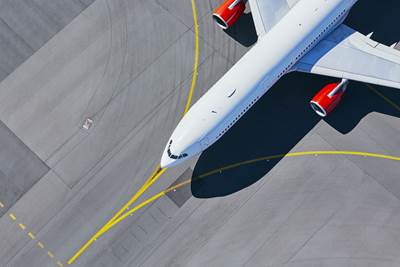Airbus full-year 2023 results outline strong commercial aircraft business
Consolidated financial results surpass 2022 results, deliver on commitments made in 2023 despite complex operating environment.
Source | Unsplash/Sardar Faizan
Airbus SE (Amsterdam, Netherlands) has reported consolidated full-year (FY) 2023 financial results, with issued guidance for 2024. The aerospace company achieved its 2023 guidance, delivering 735 commercial aircraft, reaching €65.4 billion in revenue and an EBIT Adjusted of €5.8 billion. Free cash flow before M&A and customer financing was €4.4 billion and net cash €10.7 billion.
“In 2023, we recorded strong order intake across all our businesses and we delivered on our commitments. This was a significant achievement given the complexity of the operating environment,” Guillaume Faury, Airbus CEO, notes. “We will continue to invest in our global industrial system, while progressing on our transformation and decarbonization journey. Our dividend proposals are a reflection of the strong 2023 financials, our growth prospects in 2024 and balance sheet strength.”
Gross commercial aircraft orders totaled 2,319 (2022: 1,078 aircraft) with net orders of 2,094 aircraft after cancelations (2022: 820 aircraft). The order backlog amounted to 8,598 commercial aircraft at the end of 2023.
- Airbus Helicopters registered 393 net orders (2022: 362 units), which were well spread across programs and corresponds to a book-to-bill ratio above one both in units and value.
- Airbus Defence and Space’s order intake by value increased 15% to €15.7 billion (2022: €13.7 billion), corresponding to a book-to-bill of around 1.4 by value. Fourth quarter orders included 16 C295 aircraft for Spain.
Consolidated order intake by value increased to €186.5 billion (2022: €82.5 billion) with the consolidated order book valued at €554 billion at the end of 2023 (year-end 2022: €449 billion). The increase in the consolidated backlog value mainly reflects the company-wide book-to-bill of well above one, partly offset by the weakening of the U.S. dollar.
Consolidated revenues increased 11% year-on-year to €65.4 billion (2022: €58.8 billion). A total of 735 commercial aircraft were delivered (2022: 661 aircraft), comprising 68 A220s, 571 A320 Family, 32 A330s and 64 A350s. Revenues generated by Airbus’ commercial aircraft activities increased 15%, mainly reflecting the higher number of deliveries.
- Airbus Helicopters’ deliveries were stable at 346 units (2022: 344 units) with revenues rising 4%, reflecting the overall performance across programs and services.
- Airbus Defence and Space revenue increased 2%, mainly driven by Military Air Systems and Connected Intelligence, offset by some updated estimates at completion of certain space programs. A total of 8 A400M military airlifters were delivered (2022: 10 aircraft).
Consolidated EBIT Adjusted was €5,838 million (2022: €5,627 million). This factor is an alternative performance measure and key indicator capturing the underlying business margin by excluding material charges or profits caused by movements in provisions related to programs, restructuring or foreign exchange impacts as well as capital gains/losses from the disposal and acquisition of businesses.
EBIT Adjusted related to Airbus’ commercial aircraft activities increased to €4,818 million (2022: €4,600 million), reflecting the higher deliveries and a more favorable hedge rate, partially offset by investments for preparing the future. FY 2022 included the non-recurring positive impacts from retirement obligations and compliance-related topics partly offset by the impact resulting from international sanctions against Russia, while in H1 2023 provisions were released for €0.1 billion from compliance-related topics.
Read “Airbus reports widebody market recovery, production ramp-up progress.”
The A220 ramp-up continues toward a monthly production rate of 14 aircraft in 2026, with a focus on the program’s industrial maturity and financial performance. Concerning the A320 Family program, Airbus reports that production is progressing well toward the previously announced rate of 75 aircraft/month in 2026. In 2023, construction of the second A320 final assembly capacities in Tianjin (China) and Mobile, Alabama (U.S.) commenced and the new A320 Family final assembly line in Toulouse delivered its first aircraft in December. The first customer A321XLR entered into the final assembly line in December 2023, with entry-into-service for the aircraft type expected to take place in Q3 2024.
- On widebody aircraft, the company continues toward a monthly rate of 4 aircraft for the A330 in 2024 and rate 10 in 2026 for the A350.
- Airbus Helicopters’ EBIT Adjusted increased to €735 million (2022: €639 million), reflecting strong performance across programs and services. FY 2022 also included net positive non-recurring elements.
- EBIT Adjusted at Airbus Defence and Space decreased to €229 million (2022: €384 million). The decrease reflects €0.6 billion charges resulting from the update of estimates at completion of certain space programs, partially mitigated by the performance of the rest of the business. FY 2022 included some non-recurring elements, notably from the loss of two Pleiades Neo satellites.
For the A400M program, development activities continue toward achieving the revised capability roadmap. According to Airbus retrofit activities are progressing in close alignment with the customer. In 2023, an additional update of the contract estimate at completion has been performed and a net charge of €41 million recorded. Risks remain on the qualification of technical capabilities and associated costs, on aircraft operational reliability, on cost reductions and on securing overall volume as per the revised baseline.
Consolidated self-financed R&D expenses totaled €3,257 million (2022: €3,079 million). Consolidated EBIT (reported) amounted to €4,603 million (2022: €5,325 million), including net adjustments of €-1,235 million.
These adjustments comprised:
- €-1,030 million related to the dollar working capital mismatch and balance sheet revaluation, of which €-224 million were in Q4. This mainly reflects the phasing impact arising from the difference between transaction date and delivery date;
- €-89 million related to the Aerostructures transformation, of which €-32 million were in Q4;
- €-41 million related to the A400M program, of which €-41 million were in Q4;
- €-75 million of other costs including compliance, of which €-19 million were in Q4.
The financial result was €166 million (2022: €-250 million). It mainly reflects a positive impact from the revaluation of certain equity investments. Consolidated net income was €3,789 million (2022: €4,247 million) with consolidated reported earnings per share of €4.80 (2022: €5.40).
Consolidated free cash flow before M&A and customer financing was €4,386 million (2022: €4,680 million), mainly reflecting the level of commercial aircraft deliveries as well as the strong performance in all businesses. Consolidated free cash flow of €3,885 million (2022: €4,324 million) included €-65 million for M&A activities and €-436 million of customer financing, mostly related to the planned execution of certain contractual obligations. The gross cash position stood at €25.3 billion at the end of 2023 (year-end 2022: €23.6 billion), with a consolidated net cash position of €10.7 billion (year-end 2022: €9.4 billion).
The board of directors will propose the payment of a 2023 dividend of €1.80 per share (2022: €1.80 per share) and a special dividend of €1.00 per share to the 2024 Annual General Meeting taking place on April 10, 2024. The proposed payment date is April 18, 2024.
As the basis for its 2024 guidance, the company assumes no additional disruptions to the world economy, air traffic, the supply chain, the company’s internal operations and its ability to deliver products and services.
Airbus’ 2024 guidance is before M&A. On that basis, the company targets to achieve around 800 commercial aircraft deliveries, an EBIT Adjusted between €6.5-7.0 billion and free cash flow before consumer financing of around €4.0 billion by end of 2024.
Related Content
Cryo-compressed hydrogen, the best solution for storage and refueling stations?
Cryomotive’s CRYOGAS solution claims the highest storage density, lowest refueling cost and widest operating range without H2 losses while using one-fifth the carbon fiber required in compressed gas tanks.
Read MorePEEK vs. PEKK vs. PAEK and continuous compression molding
Suppliers of thermoplastics and carbon fiber chime in regarding PEEK vs. PEKK, and now PAEK, as well as in-situ consolidation — the supply chain for thermoplastic tape composites continues to evolve.
Read MoreThermoplastic composites welding advances for more sustainable airframes
Multiple demonstrators help various welding technologies approach TRL 6 in the quest for lighter weight, lower cost.
Read MoreMaterials & Processes: Resin matrices for composites
The matrix binds the fiber reinforcement, gives the composite component its shape and determines its surface quality. A composite matrix may be a polymer, ceramic, metal or carbon. Here’s a guide to selection.
Read MoreRead Next
Airbus inaugurates new Toulouse-based A320 final assembly line
Final assembly line will contribute to A320 Family production rate increase of 75 aircraft/month in 2026, adding to Airbus’ 10 assembly sites.
Read MoreAirborne to supply composites cutting/kitting equipment to Airbus Helicopters
Fully digital Kit by Light systems will enable faster, simpler and more efficient composite ply management at Airbus’ Donauwörth facility.
Read MoreAirbus officially begins operations at aircraft lifecycle center
The Airbus Lifecycle Services Centre (ALSC) unites Airbus and partners in Chengdu, China, to manage the entire aircraft lifecycle, aiming for recovery of up to 75% of stored aircraft at the facility.
Read More

